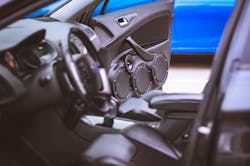Even when viewed through an “audio lens,” an automobile remains a complex system. As such, it makes sense to break down any discussion around testing into key subsystems. Here we will focus on automotive audio amplifiers, and the types of tests that are normally made on these devices.
This content is sponsored by:

